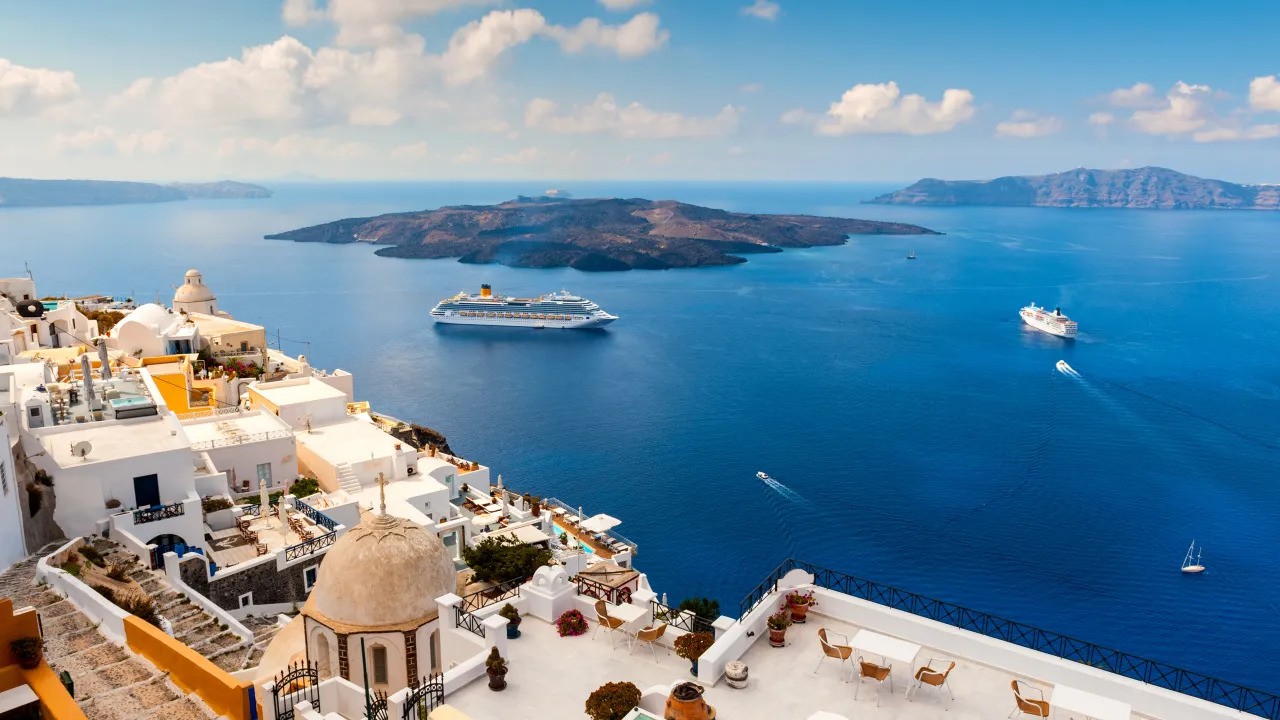Greece is gearing up to combat overtourism on its most popular islands, Santorini and Mykonos, by introducing a new tax aimed at cruise visitors. As tourism continues to surge, Greek officials are working on strategies to manage the influx of travelers and preserve the beauty and culture of these iconic destinations.
Cruise Visitors to Pay New Tax on Santorini and Mykonos
Starting soon, visitors arriving by cruise ship to Santorini and Mykonos could be subject to a €20 ($22) tax, a move designed to ease the strain caused by overtourism during the peak summer months. The plan, announced by government officials, follows a dramatic rise in visitor numbers, particularly from cruise ships, which have been blamed for overcrowding these popular spots.
“Greece does not have a structural overtourism problem… Some of its destinations have a significant issue during certain weeks or months of the year, which we need to deal with,” Prime Minister Kyriakos Mitsotakis explained in a recent press conference, according to Reuters.
Surge in Tourism Spurs Government Action
Tourism in Greece is booming, and recent numbers underscore the need for action. From January to June, over 11 million travelers visited the country, generating around $7 million in travel receipts, according to the Bank of Greece. Last year alone, 209,300 American tourists flocked to the Mediterranean nation.

As Greece enjoys these economic benefits, the government is taking steps to ensure the sustainability of its tourism sector. In addition to the new tax, the Greek government is also considering limiting the number of cruise ships allowed to dock at popular destinations like Santorini and Mykonos, according to Reuters.
“Cruise shipping has burdened Santorini and Mykonos and this is why we are proceeding with interventions,” Mitsotakis said,
emphasizing the need for immediate action to protect these islands from overcrowding.
Greece Joins Other European Countries in Overtourism Fight
Greece isn’t the only European nation grappling with the consequences of overtourism. According to the European Parliament’s report titled “Overtourism: Impact and Possible Policy Responses,” the effects of overtourism can be severe, putting both natural and cultural heritage sites at risk of losing their allure as tourism destinations.
Several other European countries have already implemented measures to address the issue. Venice, for instance, has launched a pilot program to charge day-trippers an entry fee on peak days, while Rome is considering time slots at its iconic Trevi Fountain to control crowds and collect a fee.
Preserving Greece’s Treasures for Future Generations
While the new tax may draw some criticism from tourists, it represents Greece’s ongoing effort to find a balance between welcoming visitors and preserving the beauty of its famous islands. The government’s message is clear: sustainable tourism is essential to protect Greece’s cultural and natural treasures for future generations.
By addressing overtourism head-on, Greece hopes to maintain its status as a premier global travel destination without sacrificing the quality of life for locals or the integrity of its historic sites.



